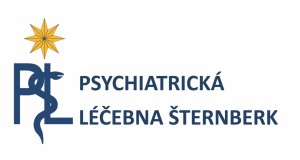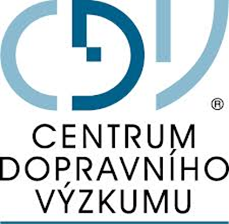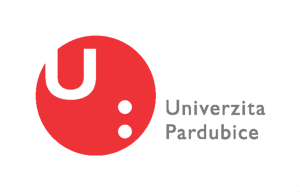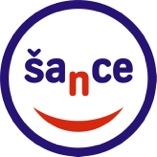Traffic psychology is one of the areas on which the Department of Psychology at Palacky University, Olomouc, focuses its research and teaching activities. Hosting professor for area of Traffic psychology at our department is prof. Ralf Risser. We focus on the basic and applied research and experimental development in the are of human factors in traffic and traffic safety.
Traffic psychology in Department of Psychology at Palacky University in Olomouc (poster)
Researchgate profile – Ass.prof. Matus Sucha
NEWS
New book: Traffic Psychology Dictionary, available from October 2017
Research and teaching activities
1. Instruction in undergraduate and graduate study programmes
2. Basic and applied research and experimental development
3. Postgraduate education and training
Instruction in undergraduate and graduate study programmes
Undergraduate and graduate studies are provided as part of a master’s programme and involve the following courses:
- Traffic psychology 1 – General background
- Traffic psychology 2 – Human factors in traffic
- Engineering psychology and ergonomics
Research and development
Our research activities focus on the human factor in traffic and traffic safety. The following areas are of particular research interest:
1. Basic and applied research
- Road users’ behaviour and the possible ways of influencing it
- Risky and vulnerable road user groups
- Cycling and walking
- Driving under the influence of alcohol and other drugs
- Older drivers and cognitive deficits
- Alcolock, alcohol ignition interlock
- Public transport
2. The development of methodologies and assessment tools
- Methodology to assess psychological fitness to drive (traffic psychology assessment)
- Development and localisation of special traffic psychology methods
3. The development and evaluation of training and rehabilitation courses
- Integrated curriculum for postgraduate education in traffic psychology
- Rehabilitation courses for drivers
- Tools to evaluate rehabilitation programmes
Students` theses on Traffic psychology
Research projects
Life without a Car
Expert supervisor: doc. PhDr. Matúš Šucha, PhD.
Research team: Prof. Ralf Risser, Mgr. Lucie Viktorová
Our research explores changes in the transport-related habits and life of the people residing in the city of Olomouc and the surrounding area who voluntarily decided to give up using cars. The participants in the research project are individuals and families who previously used cars at least four times per week to get around and reside in Olomouc or within 50 kilometres of it. For more information visit www.zivotbezauta.upol.cz.
Grant support: SGS IGA UP FF 2017 and 2018
Comprehensive Physiological Monitoring of Drivers for Psychological Factors Influencing Driving Behaviour
Expert supervisor: doc. Matúš Šucha
Research team: Dr. Martin Seitl, Mgr. Tomáš Dominik.
Principal Investigator Brno University of Technology: doc. Radim Kolář
The main objective of the project is to specify the basic biosignals which can be used for the reliable detection of critical conditions (such as fatigue or stress) of a person while driving. Another aim is to define how these biosignals should be measured with regard to drivers’ comfort and practical utilisation. The final set of these signals and parameters will help significantly in identifying the reasons for the low reliability of the existing systems for the detection of fatigue and stress.
Grant support: TACR ETA 2018-2020. Palacky University Olomouc is a partner of the project. The principal investigator is the Brno University of Technology.
Driver adaptation on Driving Assistance Systems in the vehicle
Guarantor: PhDr. Matúš Šucha, PhD.
The key objective of the project is to describe the process and degree of a person’s (driver’s) adaptation to onboard driver assistance systems, particularly in terms of traffic safety, i.e. what positive, or negative, effects such systems may have on traffic safety. The aim is to address the problem from both the individual (i.e. the driver’s) and the social perspective (i.e. traffic safety and public health as an issue for the entire society). In a broader context, the ambition is to develop resources for prevention and the training and education of drivers which should improve the acceptance of these systems and understanding of their functions and limitations, as well as preventing drivers from overestimating the capacities of such technologies.
Grant support: TAČR (Technology agency Czech Republic), Omega 2016 – 2017
Explanatory traffic psychology dictionary
Guarantor: PhDr. Matúš Šucha, PhD.
Co-organisers: PhDr. Lenka Šrámková (DSP student), Mgr. Petr Zámečník (DSP student), PhDr. Dana Černochová (external), PhDr. Vlasta Rehnová (external)
Abstract: Traffic psychology as a scientific discipline works with a certain conceptual apparatus in which there are many terminological ambiguities, and efforts to clarify these ambiguities support the clarity and objectivity of the discipline. Due to this the project will create a dictionary of terminology and explanations for traffic psychology, which aims to collect and define the basic terms used. In addition to the interpretation of the terms, their English and German translations or equivalents will be included. The main aim of the project is the creation and publication of the dictionary (2015). The aim of the project follows general social and scientific goals aimed at unifying the terminology in the field of traffic psychology and the definition of key terms. The book will serve as a foundation for transport professionals.
Grant support: Supported by the UP
The Monitoring of Testosterone Levels in Risky Drivers
Expert supervisor: PhDr. Matúš Šucha, PhD.
Research team: PhDr. Radko Obereignerů, PhD. PhDr. Miroslav Orel, Mgr. Petr Zámečník (Transport Research Centre), MUDr. Július Hodosy (Institute of Molecular Biomedicine and the Institute of Physiology, Faculty of Medicine, Comenius University, Bratislava).
Annotation: The purpose of the project is to test whether risky and safe drivers differ in their levels of testosterone (and other characteristics related to the hormone). Data will be collected by our partner organisation, the Brno Transport Research Centre, for drivers who have their driving licences suspended (and who are undergoing rehabilitation programmes before the reinstatement of their licences). The sample comprises some 100 drivers. Average population levels will be used as control values. If this pilot research study yields promising results, an application for funding will be submitted in association with the Institute of Molecular Biomedicine in Bratislava.
Perception of Risk in Traffic Situations
Expert supervisor: PhDr. Matúš Šucha, PhD.
Research team: Ing. Jiří Ambrož (Transport Research Centre)
Annotation: The objective of this research project is to describe the way in which people perceive and assess risk-posing traffic situations with respect to their personality traits, identifications with specific road user roles (pedestrian, cyclist, driver, etc.), and driving behaviour. The respondents will be asked to scale-rate 35 short videos in terms of the level of risk they perceive in the situation on display. In addition, they will be asked to complete a short questionnaire (personal data), the TVP personality test, and the DBQ questionnaire. The project is carried out in cooperation with the Transport Research Centre.
NVH Analysis Techniques for Design and Optimisation of Hybrid and Electric Vehicles
Expert supervisor: PhDr. Matúš Šucha, PhD.
Research team: Mgr. Petr Zámečník
Annotation: The main objective of the COST projects is to share international expert knowledge and produce compilations of findings in the form of progress and final reports. This COST Action focuses on the issue of hybrid and electric vehicles, especially with a view to their development and optimisation for a wider community use. The main contributions and tasks of our university within the consortium are the provision of information about the public perception of electromobility, the definition of consumers’ requirements, and the linking of the consumers’ needs with the potential development of the vehicles.
Grant support: COST Action TU 1105, H2020
Advanced Driver Assistance Systems (ADAS) in Skoda Auto Cars: Drivers’ Perspective
Guarantor: Palacky University, Olomouc: PhDr. Matúš Šucha, PhD., Škoda Auto, a.s.: Ing. Jiří Haman
Co-organisers: Martin Nevřela (as part of his diploma thesis project)
Abstract: The aim of this research project is to test empirically the degree of Czech drivers’ acceptance of advanced driver assistance systems (ADAS) in Škoda Auto cars. It also seeks to define ergonomic conditions (especially the method of system-driver communication) which may improve the acceptance of the system. A final objective is to test the level of knowledge about the systems and define the most effective ways of communicating the relevant information to the customers (drivers). It is a student research project – the research is part of the participating student’s diploma thesis.
Grant support: The research project was made possible by funding from Škoda Auto, a.s.
Values and attitudes towards traffic safety
Guarantor: PhDr. Matúš Šucha, PhD.
Abstract: The research focuses on identifying and describing the attitudes and underlying values of citizens of different nations towards traffic safety. The research is conducted in the form of on-line questionnaires, and the qualitative data is processed in the form of a text analysis. The research is conducted on five continents (in 7 languages) in approximately 50 countries. The aim of the research is to describe and compare the global values and attitudes of different populations towards traffic safety. The practical implications of the research results are a better understanding of traffic safety in different communities and better targeted safety campaigns.
Operation and safety of tramways in interaction with public space
Guarator: PhDr. Matúš Šucha, PhD.
The main objective of the project is to increase the safety of tram traffic in cities, and by analysing the risk of nodes (called hotspots), describe procedures for avoiding conflicts and accidents in these locations. The project will further describe the interaction between trams and other participants in the traffic environment – especially automobiles, cyclists, and pedestrians. The human factor will be emphasised as a central control element in the transport system. The philosophical basis of the conceptualisation of safety and accident prevention is the assumption that there are various indicators that can be expected of an accident in the future (at any location), which means it can be predicted. A description of these indicators and introducing them into traffic safety practice is one of the objectives of the project.
Grant support: 7. EU framework programme, COST, TU 1103
Why do we drive the way we do (COST, Dublin, 2013)
Public report Work phase 1 (pdf)
Final conference presentation – Indicators (Bertrand & Sucha) (pdf)
Safe and sustainable mobility in urban settings
Expert guarantor: Matúš Šucha
Research team: Kateřina Böhmová, Alena Hrbáčová (3rd year students)
Annotation: The main objective of the project is to engage Palacky University in the overall trend of improving traffic safety, quality of life, and environmental sustainability. Key concepts include safety for all, the quality of life of students, university employees, and citizens of the city, the environment, and the status of the university as an organization responsible across society. The campaign targets the university environment that includes the university buildings, employees, students, and the citizens of the city who are linked to the university.
Research methods (interviews, observation, history) for assessing mental fitness for drivers
Guarantor: PhDr. Matúš Šucha, PhD.
Co-organisers: PhDr. Radko Obereignerů, PhD., PhD. Lenka Šrámková (DSP student), PhDr. Michal Walter (external), PhDr. Libor Eliášek (external), Kateřina Böhmová (student)
Abstract: When assessing mental fitness for driving in traffic with psychological examinations, we combine test and clinical approaches. The research project describes the principles and methods of a clinical approach – interviews, observations and history of the traffic psychological examination in the Czech Republic. The basis is a content analysis of interviews with experienced traffic psychologists in the country. The output of the project is a monograph on the subject, which will be published in 2014.
Grant support: CZ.1.07/2.2.00/28.0143 – “Iniciace mezioborového potenciálu psychologie – inovace odborné přípravy studentů UP pro praxi”
Pedestrians and drivers: communication, needs & safety when crossing the road
Guarantor: PhDr. Matúš Šucha, PhD.
Abstract: The aim of the research is to describe pedestrian strategies when crossing the road, driver strategies at pedestrian crossings, and communication. It describes the various strategies (and the factors that influence decision making), for pedestrians as well as drivers, the combination of strategies and influencing factors, and communication between pedestrians and drivers. Risk strategies and risk combinations of different strategies are identified as well as risks and protective factors for both groups. Conflict situations (conflicts, near-misses, accidents) are discussed, and the causal processes that lead to them are described. The findings are interpreted in the context of the traffic environment.
Presentation from ICTCT Workshop, Maribor, 2013 (pdf)
Norbit conference, Copenhagen, 2013 (pdf)
Pedestrians and drivers: their encounters at zebra crossings (FTD 2014 congress, Warsaw)
Methods for assessing mental fitness for driving, and socio-psychological aspects of drivers committing repeated traffic offences
Guarantor: PhDr. Matúš Šucha, PhD.
Co-organisers: PhDr. Lenka Šrámková (DSP student), Mgr. Petr Zámečník (DSP student), PhDr.Dana Černochová (external), PhDr. Vlasta Rehnová (external)
Abstract: The main objective of the project is to carry out socio-psychological analysis of drivers who have reached the limit of 12 points in the Czech traffic offence system, which means their licenses have been revoked. The analysis will focus on the personality of the driver (personality traits, motivational factors and attitudes) and sociodemographic characteristics. Subsequently, (on the basis of those findings) a methodology for assessing mental fitness for driving, to be used when selecting and training drivers in driving schools, will be prepared. The project overlaps with the field of rehabilitation of drivers, where the information about the personality and demographic characteristics of the so-called “vybodovaných” (drivers with many traffic offences) can be used to improve the rehabilitation programs.
Grant support: Safety research MV ČR, VG20132015121.
Personality traits as a valid predictor of risky driving (CIECA congress, Berlin, 2015, pdf)
Assessment of Mental Stress of Station Managers and Train Dispatchers
Expert guarantor: Matúš Šucha
Research team: Zdeněk Vtípil, Pavel Drdla, Josef Bulíček, Petr Zámečník, Michal Šimeček, Veronika Kuřečková, Jiří Popelka.
Annotation: The main objective of the project is to assess the mental stress at work in the above professions, including the assessment of ergonomic designs of the controls of communication, radio, and information equipment and other technological devices. A part of the project is to develop the required employee personality profile concerning the profession, a battery of diagnostic psychological tests for selection in these professions, a draft measure for optimizing mental stress with an implication for an occupational hygienic design of a new central dispatcher system. The Department will implement the project in the first half of 2014 in cooperation with the Brno Transport Research Centre and the University of Pardubice. The total value of the project is CZK 3.5 mil.
Grant support: Government procurement of Railway Infrastructure Administration (SŽDC).
Translation and local adaptation of the DBQ questionnaire
Guarantor: PhDr. Matúš Šucha, PhD.
Co-organiser: PhDr. Lenka Šrámková (DSP student)
The Manchester Driver Behaviour Questionnaire, DBQ, is a widely recognized tool in the psychological diagnosis of drivers. A part of the research is the distribution of the Manchester driver behavior questionnaire (DBQ) to drivers in this country. However, the main objective of the study is to create a valid tool for psychological diagnosis in the field of traffic psychology in the Czech Republic (including those for drivers). A further aim is to demonstrate the relationship between different scales of the questionnaire (intentional infringements, dangerous mistakes, errors of inattention), socio-demographic characteristics of drivers, and their driving history (mileage, accidents, violations).
Presentation form ICDBT Helsinki 2013
Update of “9202 METHODOLOGY” – methodology for examination and assessment of the drivers of motor vehicles by traffic psychologists
Expert guarantor: Matúš Šucha
Research team: Martin Seitl, Petr Zámečník
The recipient of the grant is the Transport Research Centre, while the Department of Psychology of the Philosophical Faculty of PU Olomouc is a co-recipient. Annotation: The project aims to update the 9202 Methodology for traffic psychologist’s examination and assessment of the drivers of motor vehicles. The existing driver assessment methodology is obsolete. Valid since 1992, the methodology was to be updated every ten years, but the update never took place. Therefore, we decided to undertake the task and update the methodology so that drivers can be adequately assessed in accordance with the applicable standard.
Grant support: Ministry of Transport of the Czech Republic – research projects “Support for Sustainable Transport” Date of completion: 31 December, 2010
Conference presentations and papers
(up to the year 2016, recent papers available on Research gate profile)
DBQ – Czech drivers (ICDBT , Helsinki, 2013)
Driving under influence – safety measures (ICADTS, Oslo, 2010)
Alcohol Breath testing (on site) (ICADTS, Oslo, 2010)
Assessment of mental fitness to drive – Czech Republic (ICTPP, 2012, Groningen)
Driving under inflluence – situation in Central European Countries (ICTCT, South Africa, 2013)
Drivers and pedestrians – encounters at zebra crossings (Norbit, Copenhagen, 2013)
Why do we drive the way we do (COST, Dublin, 2013)
Pedestrians and drivers: their encounters at zebra crossings (FTD 2014 congress, Warsaw)
Why we act in the traffic the way we do (speech given for PhD students in Traffic psychology in Opole University, Poland, 2015, pdf.)
Pedestrians crossings near schools (ICTCT workshop, Lund, Sweden)
Postgraduate education and training
The Department of Psychology also provides accredited qualification courses, which are part of the life-long learning process.
The curriculum of the course for traffic psychology practitioners addresses the following topics:
- Theoretical background of traffic psychology
- Drivers’ and other road users’ behaviour and the way they experience road situations
- Assessment of psychological fitness to drive
- Clinical aspects of traffic psychology
- Driving schools and driver training
- HMI (Human-Machine Interface)
- Accidents, rehabilitation, law enforcement
- Traffic infrastructure
- Legislation
Traffic Psychology Laboratory
The traffic psychology laboratory at Palacky University in Olomouc is equipped with the following instruments that make it possible to conduct a range of research projects pertaining to basic and applied research, experimental development, and psychological assessment.
a) Vienna Test System (VTS) – Expert System Traffic (ETS) – encompasses a comprehensive system of methods for both personality and cognitive assessment using external devices. The system consists of powerful administration software, tests, and special optional input devices, including a light pen and reaction panel. It makes it possible to test a range of capabilities such as sensorimotor coordination and reaction time.
b) PSYCHOPSHYSLAB (Psychophysiology System) – makes it possible to use various methods and devices (e.g. Electroencephalogram (EEG) with a sensor cap, Electromyogram (EMG), and a device for measuring electrodermal activity, EDA.
c) VR200-INTRO-W (Virtual Reality Introductory System) – can be used to assess spatial cognition (including the observation and study of spatial behaviour and memory). It includes an augmented reality feature which makes it possible to integrate real and virtual environments. Its specially designed optics provide a clear and sharp picture, as well as covering 40 degrees of the field of vision. All the variables under study are stored in real time for any further analysis. The device is of invaluable help in performing 2D and 3D simulations.
d) EYEFRAMESCENEBI (Eye Frame Mounted Scene, Binocular) – a precision device which makes it possible to move the examinee’s head in simulated traffic situations and during assessment. The device includes a PCI digital card with two input connectors for a binocular system which may be used to record both horizontal and vertical positions of the pupil, its size, etc. The calibration of the system plays an important role, as it assures measurement precision at settings pertaining to the specific person under examination.
e) Racelogic PerformanceBox 02 – GPS tracker
We are members of:
ICADTS – The International Council on Alcohol, Drugs and Traffic Safety
TPI – Traffic Psychology International
DGVP (Die Deutsche Gesellschaft für Verkehrspsychologie e.V.)
ICTCT (International Co-operation on Theories and Concepts in Traffic Safety)
NTSA (Nordic Traffic Safety Academy)
Contact
Matúš Šucha, PhD., Associate professor
Department of Psychology, Palacky Univeristy in Olomouc
Křížkovského 8, 771 40 Olomouc, Czech Republic
Tel. +420 585 633 502






















